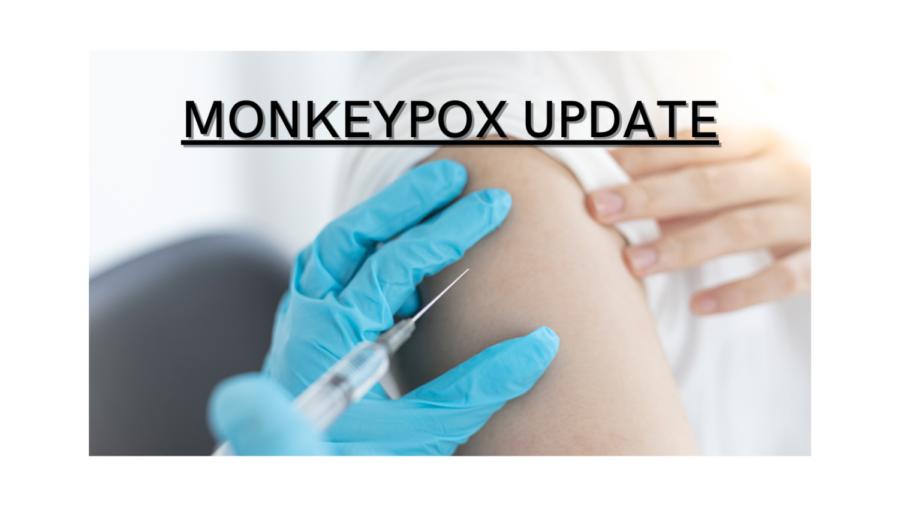Cases of monkeypox continue to spread across U.S.
As there are no cases in Harvey County and the cases in Kansas have remained low, students and staff of Newton High School can remain calm. Many people of NHS believe that this virus will not be a problem for our city because of the new vaccines and low spreading rate.
According to the Center for Disease Control, monkeypox is a rare disease caused by infection with the monkeypox virus. The first case of monkeypox in the U.S. was reported on May 18, 2022, however, the first case ever reported was in 1958. This virus is spread by direct contact which in most cases is intimate physical contact. The main symptoms of monkeypox are rash and other flu-like symptoms. Symptoms of this virus last from two to four weeks, but the virus can be spread until scabs, bumps and symptoms are healed.
“As the public health department, we have plans to reduce the spread of infectious diseases. For monkeypox, unlike Covid-19 when it first arrived in the U.S., there is a proven vaccine,” Director of Harvey County Health Department Lynnette Redington said.
According to the Kansas Department of Health and Environment, as of Aug. 12, 2022, there are three cases of monkeypox in the state of Kansas. The risk of monkeypox spreading in Kansas remains low as of now. There have been no confirmed cases of monkeypox in Harvey County as of Aug. 22, 2022.
“The Harvey County Health Department continues to monitor the monkeypox situation,” Redington said “If suspect cases arise, we will assist providers with testing and treatment protocols. We are honored to work closely with our medical community in Harvey County.”
Although the cases in Kansas remain low, other states within the country are sufficiently gaining cases daily. Currently, N.Y. leads in the U.S. in most cases. The larger population states such as N.Y., California, Texas, and Illinois continue to see cases grow throughout their main cities. The U.S. is the country with the highest amount of cases with Spain coming in second with a total number of 5,792 cases.
“I’m currently seeing monkeypox daily in my role but I think with the production of more vaccines and the new administration techniques through intradermal vaccination will help reduce the amount of monkeypox that is spread and hopefully [monkeypox] will only last for a slight period,” medical assistant in Houston, Texas Ryan Hirsh said.
There are two vaccines that are used for the monkeypox virus, these are JYNNEOS and ACAM2000. These vaccines are recommended for people who have been exposed to the virus and those who are more likely to get the virus. According to the CDC, ACAM2000 is a single-dose vaccine, and it takes four weeks after vaccination for its immune protection to reach its maximum. The CDC also states that the preferred vaccine to protect against monkeypox is JYNNEOS, which is a two-dose vaccine. It takes 14 days after getting the second dose of JYNNEOS for its immune protection to reach its maximum. The most common side effects of these vaccines are soreness, redness, fever, fatigue, headache and malaise.
“Even though most people in the U.S. had never heard of it, monkeypox is endemic to parts of Africa and has been around for quite some time. The good thing is there is a vaccine to help prevent the spread of this viral disease, and there is an effort by CDC and local public health agencies to educate how individuals can best protect themselves,” NHS science teacher Jerry Epp said.

Regan is a senior and a third-year staffer serving as Editor-In-Chief. She is a member of the Railer volleyball and softball team. In her free time, she...

